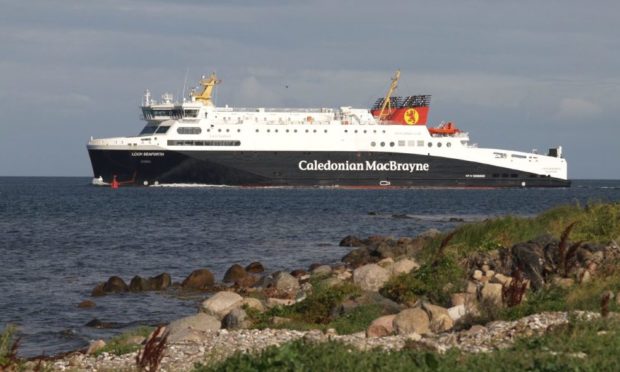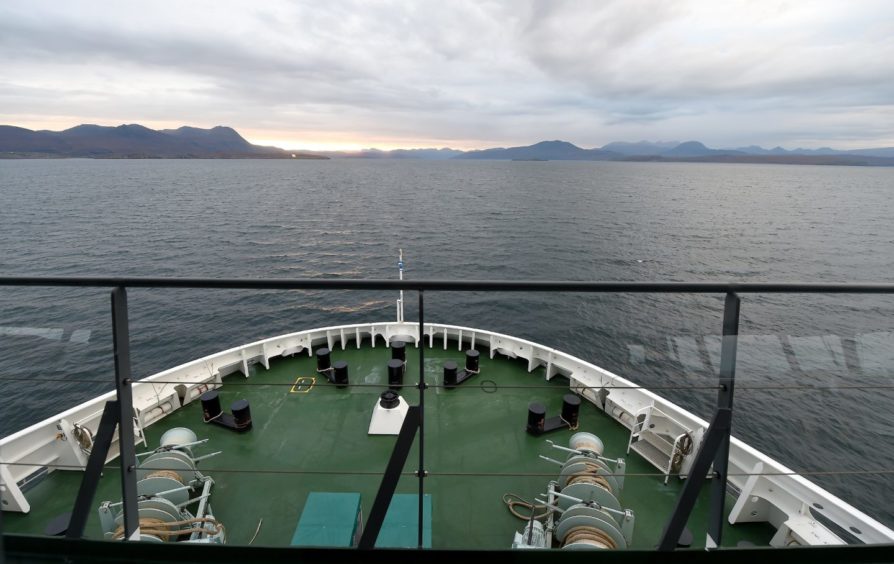The breakdown of CalMac’s largest ferry has left a gap in capacity across the Western Isles.
The island authority has set out a list of suggestions to Transport Scotland to help ease the situation.
Western Isles Council voiced its frustration after Loch Seaforth, which runs between Stornoway and Ullapool, suffered a major breakdown on Wednesday.
In the meantime, the Isle of Lewis is picking up the service. MV Isle of Arran will be temporarily taking over the overnight freight run from Wednesday evening.
Loch Seaforth will be out of action until the end of April, and possibly into May, as it heads to Greenock for specialist repairs.
The Isle of Lewis has been covering the two freight sailings, however it is unable to continue as it cannot maintain three return crossings in 24 hours due to crew availability. She will continue to operate the day services.
Removal of Loch Seaforth from the fleet means capacity is reduced from the Butt to Barra, said Western Isles Council.
A statement issued by the authority said: “The people of the Western Isles told Transport Scotland, CMAL and CalMac that the preference was a two-ferry solution on the Stornoway to Ullapool route to protect against the inevitable breakdown of a single vessel.
“Instead, a single big ferry was provided with fewer passenger sailings in the timetable than before her arrival when a dedicated freighter took the overnight strain.”
Councillor Uisdean Robertson, chairman of Transport and Infrastructure at the council, said: “The issues affecting the Western Isles as a result of the unfortunate engine failure of Loch Seaforth could have been less severe had the wishes of island communities been listened to and had any lessons been learned from past failures such as the 2018 loss of MV Clansman over that Easter period.
“There are steps available to Transport Scotland.”
He said that in the short term MV Pentalina should be chartered to provide the overnight freight service to Stornoway with the Isle of Lewis making up for lost capacity by sailing three times a day in the daytime.
He added: “Once Loch Seaforth returns Pentalina should be retained for the Mull route leaving MV Isle of Mull as second ship on the route and available to cover other routes in the event of technical problems elsewhere on the network.
“The opportunity of the new catamaran that has been identified by Mull Ferry Committee should be grasped.”
Islanders on Mull are calling on the Scottish Government to purchase a £10million catamaran currently under construction. They say it is the quickest and cheapest way to ease congestion on the busy Oban to Craignure route.
CalMac said the possibility of hiring a vessel on a temporary basis has been explored but unfortunately, none are available at short notice. This includes the Pentalina, which is not going to be free for a number of weeks.
The Arran ferry picking up the Stornoway freight run means that only one ferry, the Caledonian Isles, will operate the Ardrossan to Brodick route from April 29. Sailings on the other Arran route, Claonaig-Lochranza, will be doubled to take the strain.
As a result the Ardrossan to Campbeltown service, due to start on April 29, has been pulled.
Robbie Drummond, Managing Director of CalMac, said: “It is vital that a freight service is provided on the Stornoway-Ullapool route and this movement of vessels is necessary to provide this.
“This situation is far from ideal, and we apologise for how these changes will affect passengers. We will endeavour to offer alternative sailings to everyone who has already booked tickets between Ardrossan and Brodick.
“We know how disruptive this will be for customers and we will keep everyone informed of any further developments. Thank you for your patience at this time.”
A Transport Scotland spokesman said: “We acknowledge customers’ frustrations during periods of disruption and remain committed to supporting vital lifeline services. We fully recognise the key role ferry services play in supporting the economic, social and cultural development of island and remote mainland communities.
“Transport Scotland is currently working with CMAL, CalMac and many others to develop potential investment programmes for major vessels and small vessels with the aim of increased standardisation, taking account of the many varied routes available and circumstances.
“We look forward to working with all interested parties to continue to deliver improvements, building on the substantial investment in routes, services, vessels, harbours and fares which have been made in these services in recent years and which have led to significant enhancements in connectivity, capacity, affordability and passenger numbers.”

